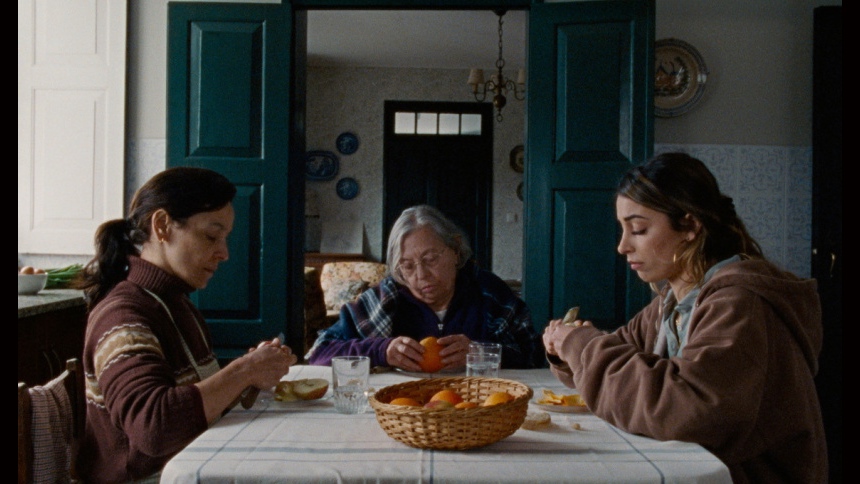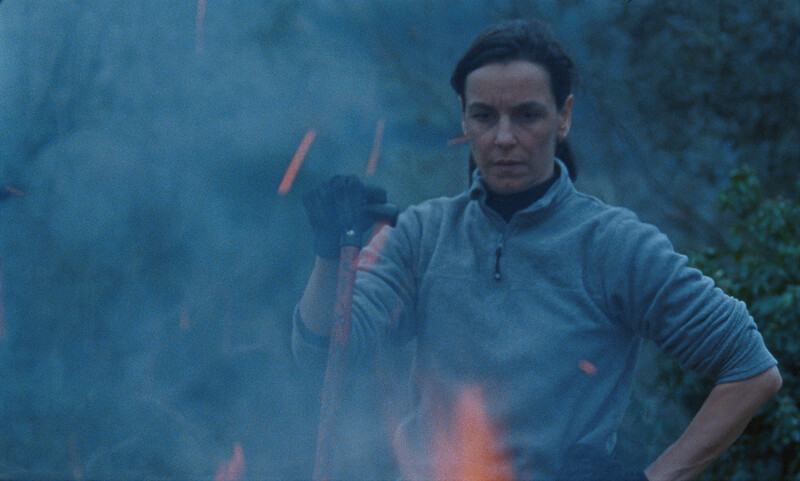Cannes 2023 Review: LÉGUA, A Sensory Experience of Time and Life
Filmmakers Filipa Reis and João Miller Guerra delicately weave together a rich tapestry of simple human experiences amidst social transformation.

From the team of Filipa Reis and João Miller Guerra comes Légua, a thoughtful contemplation of time's passage. Known for their Cape Verde-set debut docu-fiction feature Djon Africa, about the search for one's identity, and numerous documentaries, the pair presents a portrait of three generations of women against the picturesque backdrop of northern Portugal.
Légua is a subdued domestic drama in multiple respects. Set within an old manor house, it follows middle-aged Ana, who is caring for the ailing housekeeper, Emília. Ana and her construction worker husband struggle to make ends meet through their low-paying jobs. He sees their only recourse in finding construction work in France for improved earnings.
Ana, however, feels a compelling duty to stay and continue caring for Emília. A recurring scene midway through the film shows Ana's daughter, Mónica, leaving for school, with Ana expressing her deep gratitude to Emília for raising her and helping with her own child. Though Légua adequately meets the requirements of a social realist drama portraying the struggling working class, Reis and Miller Guerra hesitate to fully commit to this direction.
Instead, they persist in crafting a lyrical depiction of one woman's journey to self-fulfillment and an unusual portrayal of freedom against Portugal's timeless landscape. Yet, Ana's situation is viewed within a broader social context. She is practically a legacy housekeeper, as Emília commands the daily duties of the manor, whose owners are notably absent. Ana is deeply rooted in a space that isn't her own, while her daughter Mónica, who occasionally helps, feels detached from it.
Ana and Emília cling to the old order, while Mónica embodies a generational shift free from the nostalgia embedded in the manor's walls. She symbolizes the dawn of a new era, even as past generations fade into history.
Reis and Miller Guerra's work will inevitably draw parallels to slow cinema, characterized by a languid rhythm and predominantly observational 16mm shots by Vasco Viana. Despite the subtle undercurrent of changing generations and societal norms, the narrative lacks significant action or confrontations. Class struggle subtly persists without blatant agitation, as the film's poetics outweigh its politics.
Viana masterfully captures mundane rituals in and around the manor, from peeling potatoes to bathing the immobilized Emília. Légua extols a Thoreauvian philosophy of life, devoid of the urban hustle and bustle. Sparing dialogue and the emphasis on ritual, ordinary movement within the confined space contributes to a hypnotic rhythm, transforming the film into a visual poem.
While the film's core may be melancholic, the simplicity and tranquility of Ana's life triggers a therapeutic effect. The fading existence and the passing of time remain consistent motifs until the end. Légua celebrates women's resilience amid societal change and the country´s transformation while holding to their identites.
Echoing recent films like Here or Samsara, and despite its docu-fiction format, Reis and Miller Guerra's latest work evolves into a sensory experience.
L�gua
Director(s)
- João Miller Guerra
- Filipa Reis
Writer(s)
- José Filipe Costa
- João Miller Guerra
- Sara Morais
Cast
- Carla Maciel
- Fátima Soares
- Vitória Nogueira da Silva








